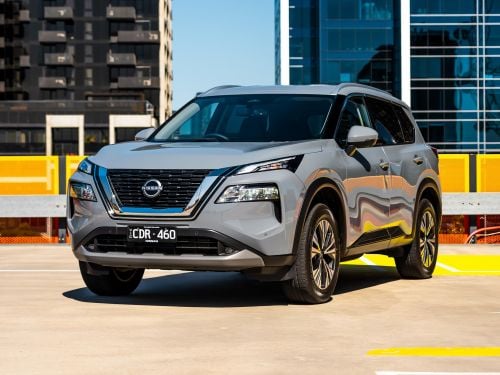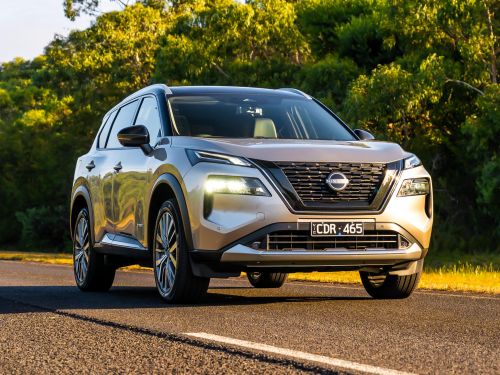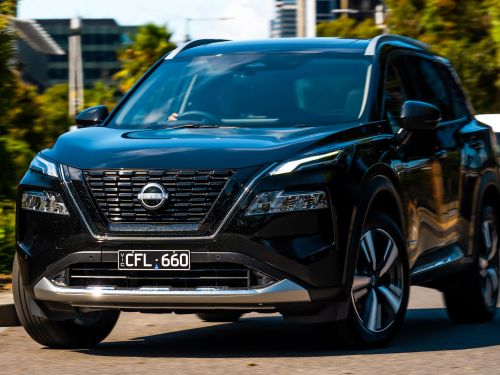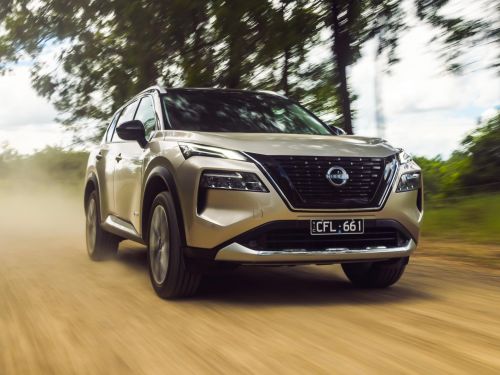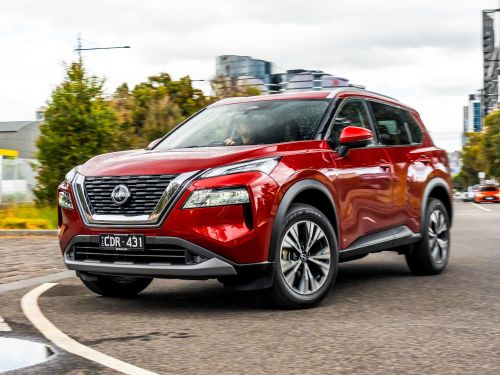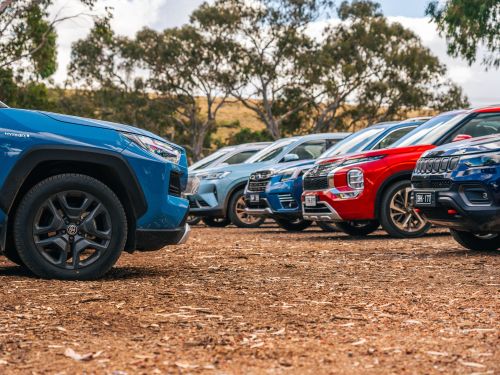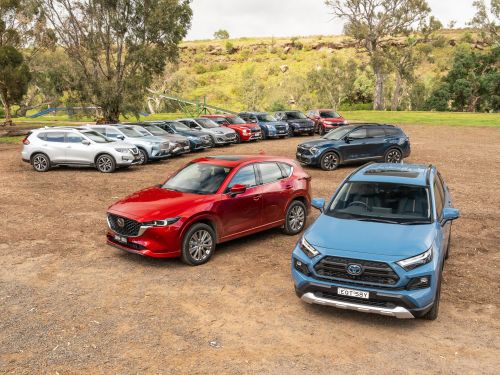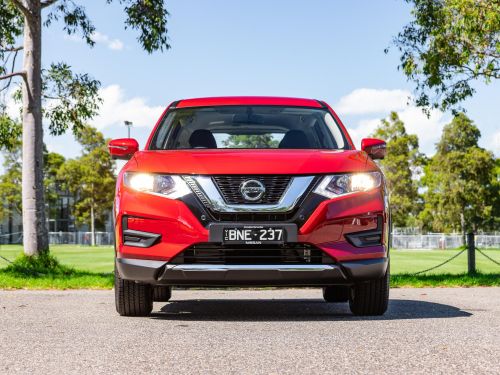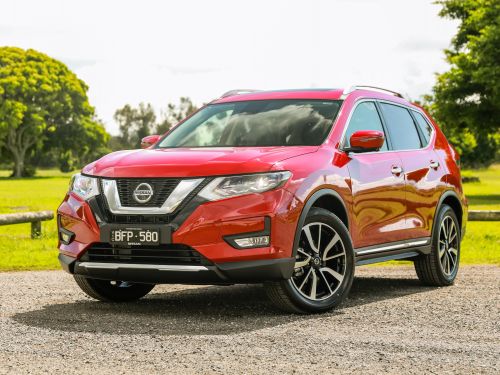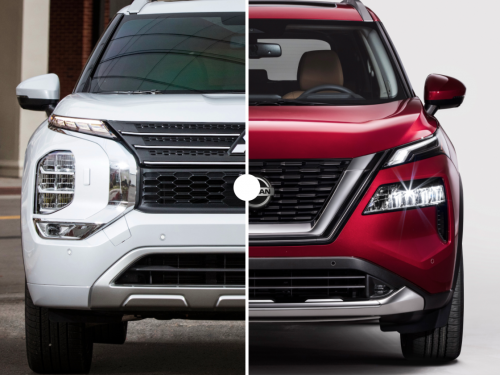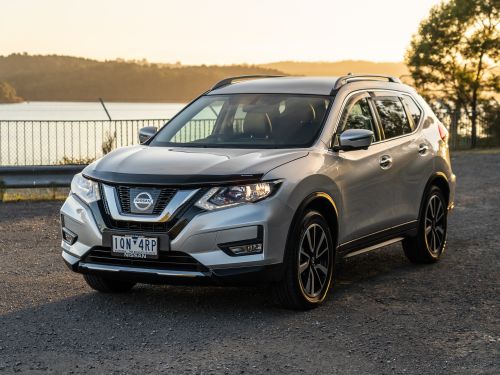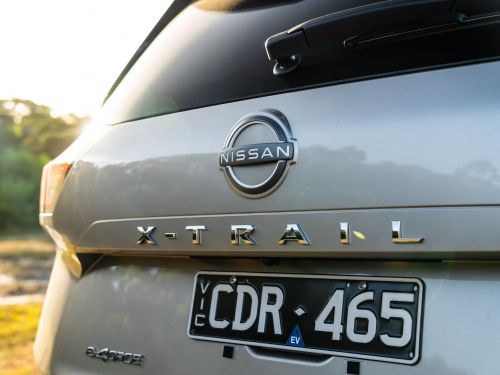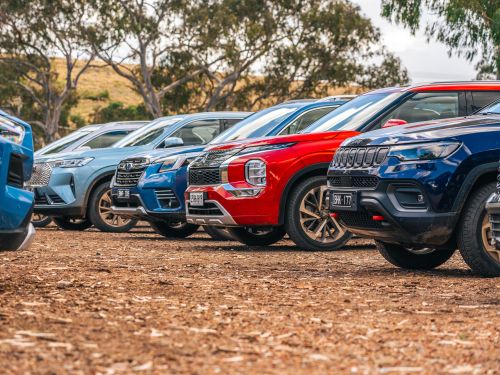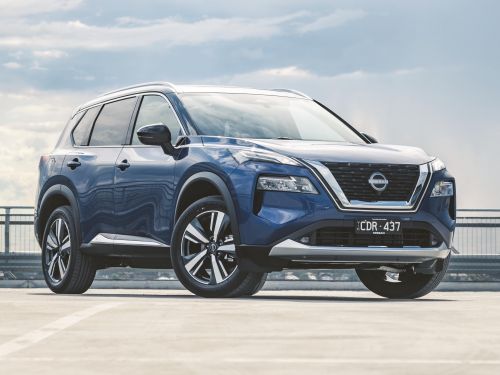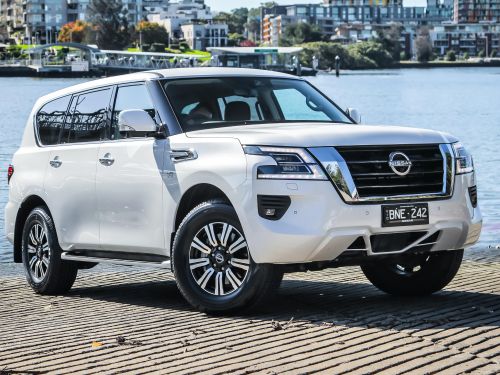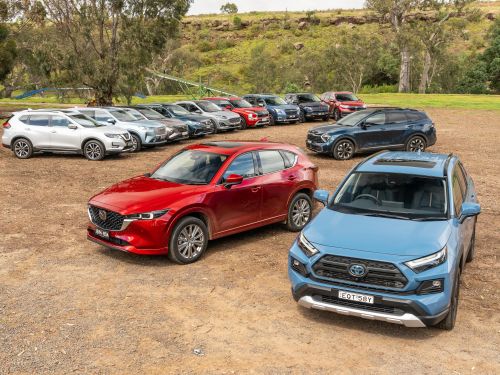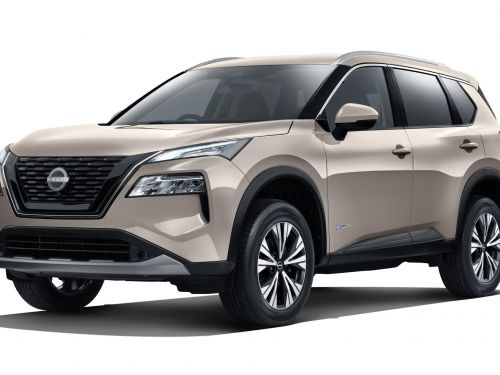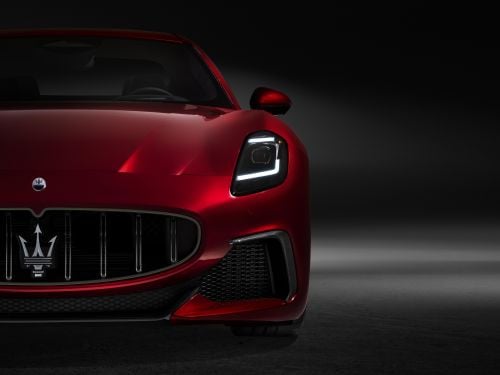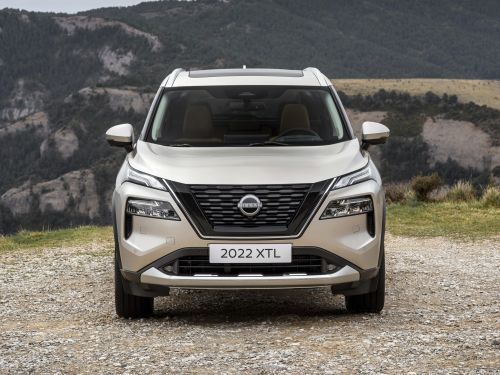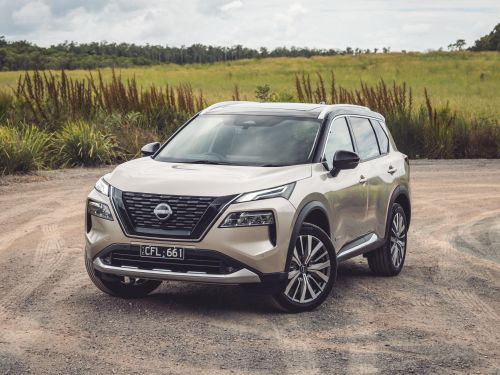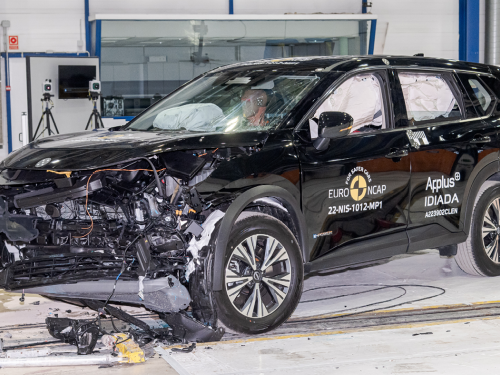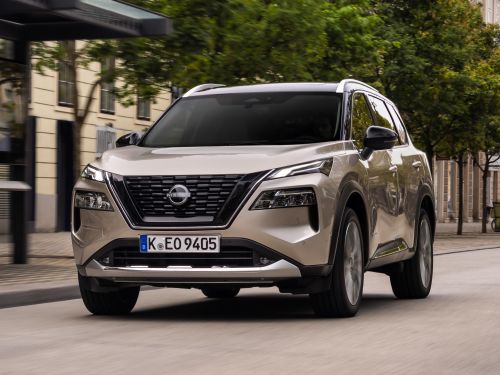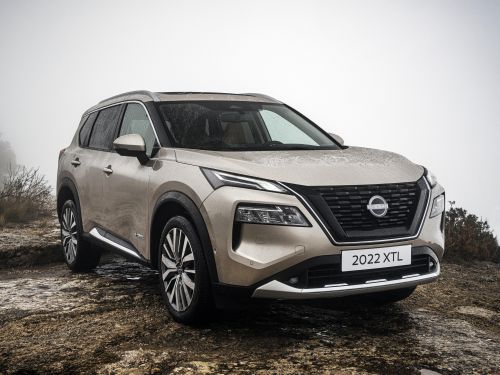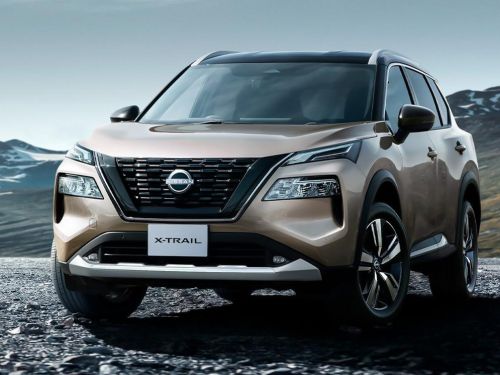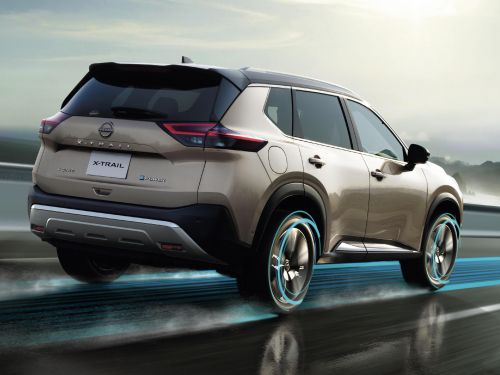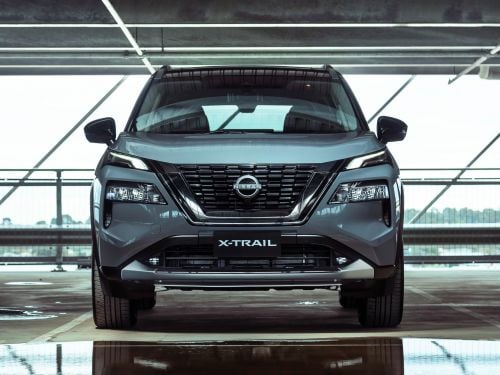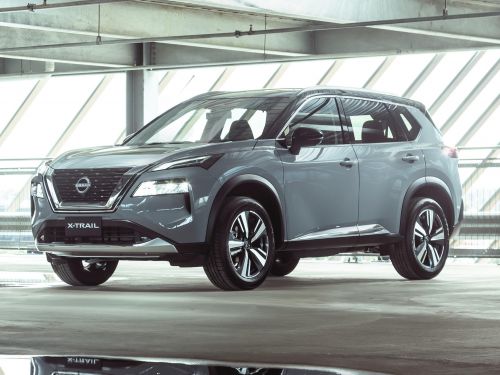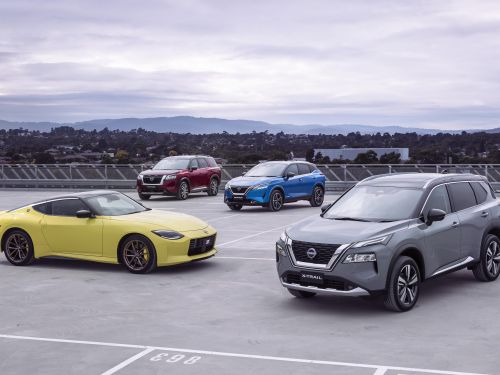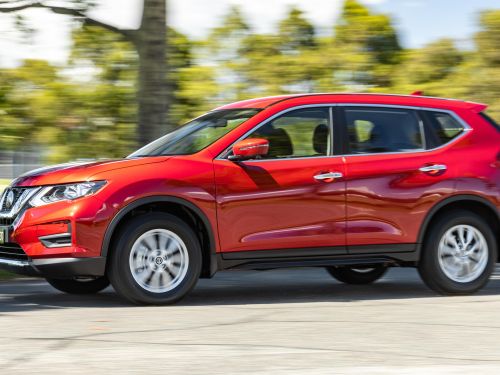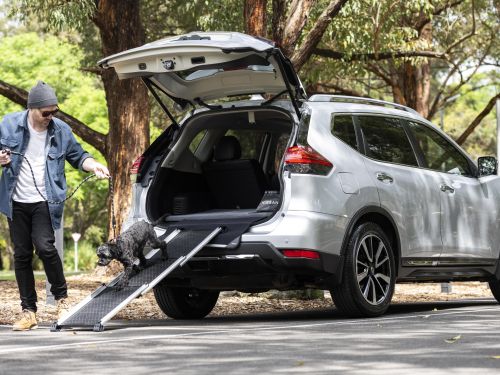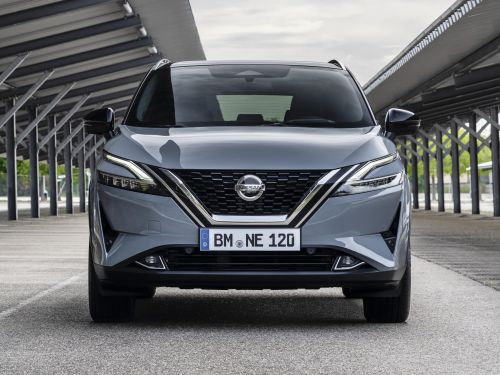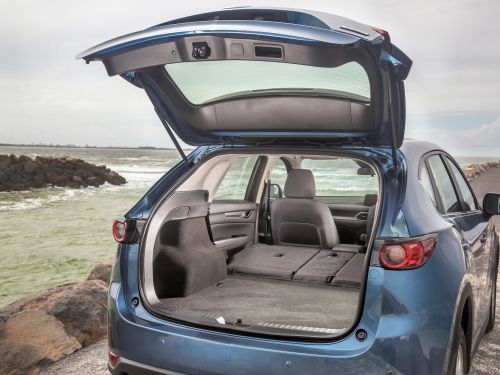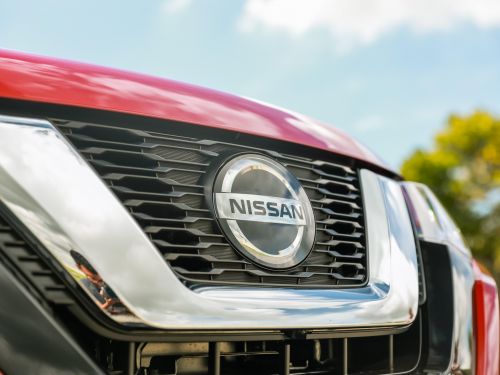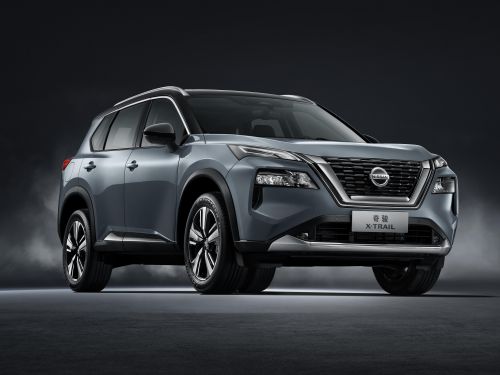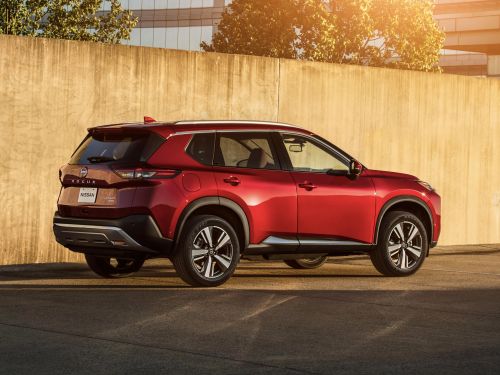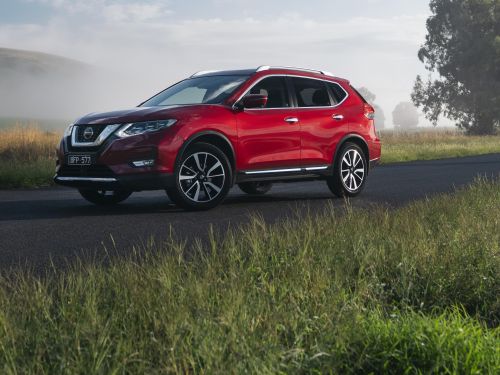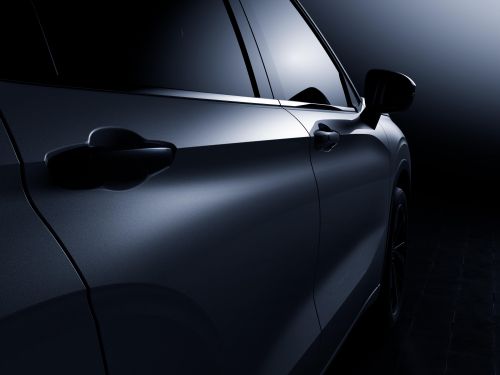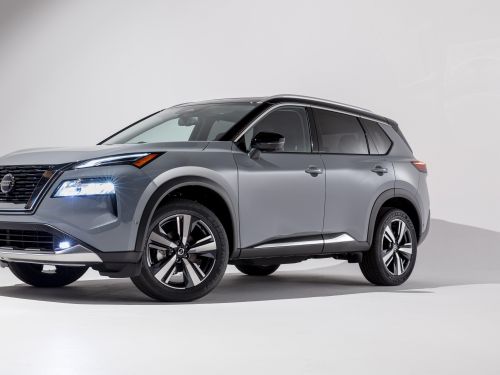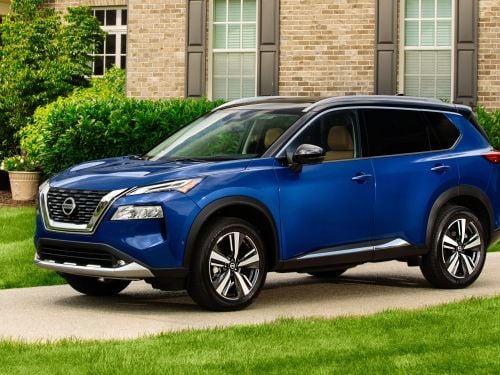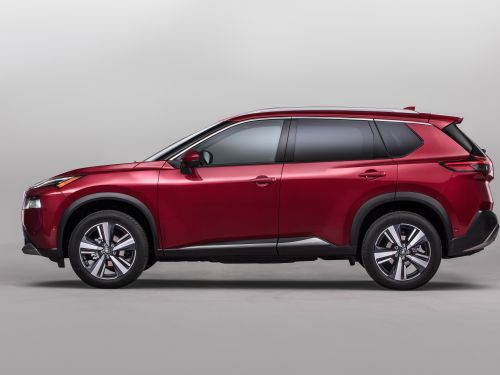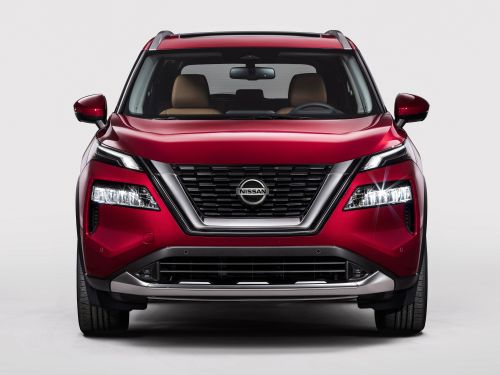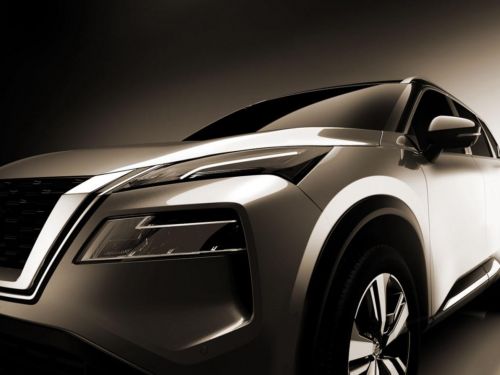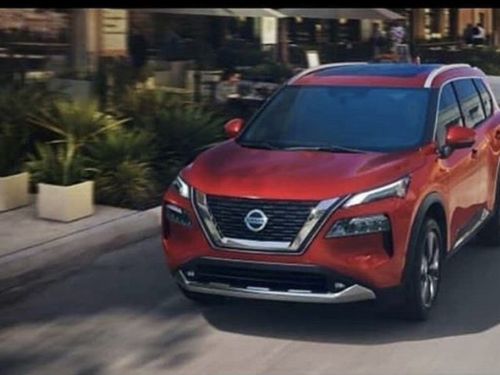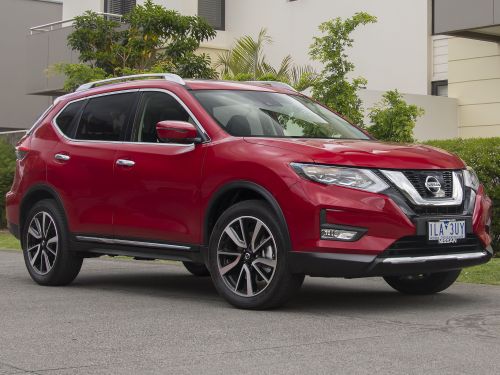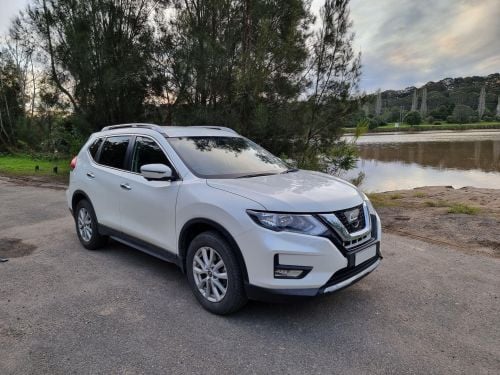2023 Nissan X-Trail

About the Nissan X-Trail
Landing more than two years after it was revealed globally in US-market form, the new X-Trail promises to be a huge improvement on its long-serving predecessor model that remains one of Australia’s most popular SUVs.
Prices are up, but so too are the levels of technology, and the design is notably more contemporary. Indeed, Nissan refers to the new X-Trail as its “most advanced SUV to date”.
Summary
New design and refinement is most welcome
Class-leading tech and safety
Space and versatility are big attributes
More expensive than some rivals
Short service intervals, pricey per visit
If you want more grunt, wait for the e-Power hybrid
Video Review
Skip to chapter
2023 Nissan X-Trail (inc. 0-100, autonomous driving & reverse test) review!
We had the chance to test the hybrid version of the Nissan X-Trail recently at the international launch, but today it's all about testing the Japanese-built Nissan X-Trail (Rogue) destined for Australia. Paul Maric gets behind the wheel to see if it's any good!
Nissan X-Trail Photo Gallery






















































Nissan X-Trail Price
- Nissan X-Trail ST 2WD five-seat: $36,750
- Nissan X-Trail ST AWD seven-seat: $39,790
- Nissan X-Trail ST-L 2WD five-seat: $43,190
- Nissan X-Trail ST-L 4WD seven-seat: $46,290
- Nissan X-Trail Ti AWD five-seat: $49,990
- Nissan X-Trail Ti-L AWD five-seat: $52,990
- Nissan X-Trail Ti e-Power with e-4orce: $54,190
- Nissan X-Trail Ti-L e-Power with e-4orce: $57,190
Prices before on-road costs, drive-away prices depend on postcode.
Reviews
News
Nissan X-Trail Range Guide
Nissan X-Trail ST
- FWD and five seats
- LED head- and tail-lights
- 17-inch alloy wheels
- Auto-folding, heated mirrors
- Roof rails
- Reversing camera
- Rear parking sensors
- 8.0-inch touchscreen
- 4 x USB points
- Apple CarPlay and Android Auto
- 7.0-inch TFT cluster display
- Fabric seats
- All-wheel drive & seven seats – optional extra
Nissan X-Trail ST-L adds
- FWD and five seats
- Privacy glass
- 18-inch alloy wheels
- Front parking sensors
- Surround-view camera
- Dual-zone climate control
- Synthetic leather-accented seats
- Heated front seats
- Power driver’s seat
- Leather-wrapped steering wheel
- Auto-dimming rear mirror
- Sliding rear seats, 40:20:40 folding
- ‘Divide-N-Hide’ cargo area system
- All-wheel drive & seven seats – optional extra
Nissan X-Trail Ti adds
- AWD and five seats
- 19-inch alloy wheels
- Panoramic sunroof
- Power tailgate
- Adaptive driving beam
- Digital rear-view mirror
- Rain-sensing wipers
- Tri-zone climate control
- Real leather-accented seats
- 12.3-inch touchscreen infotainment system
- Satellite navigation
- Wireless phone charger
- Wireless Apple CarPlay
- 12.3-inch digital instrument cluster
- 10.8-inch projecting head-up display
- Two-tone black painted roof – optional extra
Nissan X-Trail Ti-L adds
- Hands-free power tailgate
- Remote engine start
- Heated steering wheel
- Quilted Nappa leather upholstery
- Driver’s memory seat presets
- Heated second row outboard seats
- Rear sunshades
- Ambient interior lighting
- Side mirrors with tilt-to-reverse
- Bose 10-speaker sound system
- Two-tone black painted roof – optional extra
X-Trail Ti e-Power with e-4orce highlights:
- 19-inch alloy wheels
- LED turn signals
- Genuine leather-accented upholstery
- Panoramic sunroof
- Smart Rear View Mirror (digital)
- Tri-zone climate control
- Automatic wipers
- Electric tailgate
- 12.3-inch TFT digital instrument cluster
- 12.3-inch touchscreen infotainment system
- Satellite navigation
- Wireless Apple CarPlay, Android Auto
- 10.8-inch head-up display
- Wireless smartphone charger
X-Trail Ti-L e-Power with e-4orce adds:
- 20-inch alloy wheels
- Heated steering wheel
- 10-speaker Bose premium audio
- Nappa leather upholstery
- Front seats with memory function
- Heated rear seats
- Rear sunshades
- Hands-free electric tailgate
- Remote engine start
Nissan X-Trail Variants
Interior
Despite the Nissan X-Trail and Mitsubishi Outlander sharing the same platform, it’s hard to spot the similarities inside the cabin. Each has their own unique features and it feels like Nissan has gone with a more premium approach.
The X-Trail e-Power will come standard in Australia with a big 12.3-inch colour touchscreen display, in addition to a 12.3-inch display ahead of the driver. The head-up display is also big, measuring in at a little more than 10 inches in size, meaning it can offer a huge amount of addressable information.
Along the dashboard, doors and centre trims you’ll find soft-touch leather-esque materials, while a dual-tiered centre console and big centre console bin offer a surprising amount of storage.
The infotainment system features wireless Apple CarPlay and wired Android Auto, while audio comes in the form of AM/FM and DAB+ digital radio, all sent through a 10-speaker Bose-branded premium sound system.
The glass roof runs all the way to the second row with the front half capable of being opened, while an electric blind offers full closure. Second-row seats also get manually-retractable window shades.
Both front seats offer 10-way power adjustment with memory, in addition to seat heating and steering wheel heating.
There’s a stack of connectivity throughout the car with wireless phone charging, USB-C and USB-A connectivity in the first and second rows.
The second row is pretty spacious with ample leg and headroom for adults. While we won’t be getting the seven-seat version in Australia, the second row can slide by up to 200mm and recline to offer more boot space.
Speaking of which, cargo space isn’t greatly compromised due to the hybrid system. Cargo capacity comes in at 575 litres to the cargo blind, which is 10 litres down on the non-hybrid X-Trail.
The 1.8kWh battery is located beneath the passenger seat and Nissan has employed a clever system of cooling for the battery. It’s an air-cooled battery that draws air in from the cabin beneath the passenger seat – it then passes over the cells and exits behind the C-pillar.
Nissan’s testing of battery thermal management included a number of high speed charge and discharge cycles, but the one we found most interesting was loading the car up to payload capacity with a full roof load.
The engineering team then drove the car at maximum speed on the Autobahn on the highest continuous grade of derestricted road.
This 4.0 per cent grade lasted for 13km at maximum speed and didn’t see the battery discharge or overheat beyond the design parameters. Given this is the worst case scenario for a customer, it’s likely to pass the test regardless of what you’re doing with the car.
Nissan also helped reduce the weight of the vehicle by using a plastic-formed tailgate, along with aluminium doors and hood.
The leather upholstery is genuine and the seats are thickly cushioned and superbly comfortable for all shapes and sizes but with sufficient bolster to hold you steady through undulating terrain in regional Victoria. However, the Ti-L’s quilted Nappa leather in Tan looks and feels especially luxurious should you have the means to stretch the budget a few grand.
Nissan X-Trail Colours
- Solid White
- Brilliant Silver
- Champagne Silver
- Ivory Pearl
- Gun Metallic
- Ceramic Grey
- Caspian Blue
- Scarlet Ember
- Diamond Black
- Sunset Orange two-tone
- Ceramic grey two-tone
- Ivory Pearl two-tone
- Caspian Blue two-tone

Cost of Ownership
2023 Nissan X-Trail servicing costs:
X-Trail 2WD:
- 10,000km/12 months: $363.00
- 20,000km/24 months: $469.00
- 30,000km/36 months: $504.00
- 40,000km/48 months: $587.00
- 50,000km/60 months: $409.00
- 60,000km/72 months: $657.00
X-Trail 4WD:
- 10,000km/12 months: $363.00
- 20,000km/24 months: $469.00
- 30,000km/36 months: $532.00
- 40,000km/48 months: $587.00
- 50,000km/60 months: $409.00
- 60,000km/72 months: $696.00
How it Drives
Impressions are of the e-Power
Having driven a number of hybrid vehicles previously, they all kind of feel and sound the same way. They’re quiet until you need to step on the throttle and then there is a symphony of noise inside the cabin as a CVT flares up to supplement the hybrid system’s torque.
The system within the X-Trail feels more like an EV in its operation. Torque delivery is smooth and progressive and the only time you really notice the internal combustion engine is when the battery is depleted and you get on the throttle.
Outside of that it remains fairly quiet inside the cabin. You can also operate the X-Trail e-Power in EV mode up to 90km/h or until heavier throttle applications occur.
To the average person driving the X-Trail, it feels fairly normal and doesn’t feel out of the ordinary.
There are inconsistencies between applying the throttle and hearing the petrol engine – as sometimes the vehicle will take energy from the battery instead of firing up the petrol engine initially. It takes a bit of getting used to, but outside of that it’s pretty straightforward.
The Ti-L will come standard with 20-inch alloy wheels, and we were pretty surprised with how good the ride was. It’s worth keeping in mind the roads we drove on in Slovenia were well maintained and not really representative of what we have in Australia.
Likewise road and wind noise – even at 130km/h highway speeds – was subdued and incredibly quiet for a vehicle this size, to the point where it feels more refined than the Mitsubishi Outlanderthe X-Trail shares a platform with.
There was a good link between regeneration and the mechanical brakes with two additional regen modes the driver is able to choose from.
Switching the gear shifter to B mode allows up to .15g of regenerative deceleration when the throttle is released, while hitting the e-Pedal button allows up to .2g of regenerative deceleration along with the further application of mechanical brakes to bring the car to around 10-20km/h before deceleration stops.
It’s a little disappointing the e-Pedal didn’t bring the car to a full stop without the driver needing to intervene. According to Nissan, customer feedback suggested it was too difficult to use (like in the Leaf where it comes to a full stop) and as a result they preferred to just use the brakes at lower speeds.
Another clever feature Nissan integrated into the X-Trail e-Power was technology that routed regen through the generator and internal combustion engine when the battery is full.
Typically a hybrid will stop the deceleration that occurs thanks to regeneration when the battery system is full. This typically occurs on a long downhill stretch. When this point is reached often a hybrid won’t slow down at all like it would when the battery had less charge.
Here in the X-Trail e-Power, it turns to the internal combustion engine for relief in these situations. The inverters and generator via the electric motors run the generator and petrol engine to further slow the vehicle when no more energy can be captured.
It’s not actually using any fuel when it does this, but it creates an outlet to send the energy the car would otherwise lose as heat in the mechanical brakes. It also allows regen to occur through both motors instead of just the one, which provides a more progressive slow down with less pitch.
In terms of dynamics, Nissan has dialled in a reasonable amount of steering feel, and when you switch from the regular driving mode to Sport it offers sharper throttle response and an engaging drive by virtue of instant torque availability on both axles.
The body sits nice and flat through corners and despite its weight – just over 1900kg – and it actually feels fun to drive if you find a nice mountain pass like we did. Torque vectoring is initiated using the brakes and it allows the car to tuck in through corners when the throttle is applied and more traction is needed on either side of the axle.
Here in the X-Trail e-Power, it turns to the internal combustion engine for relief in these situations. The inverters and generator via the electric motors run the generator and petrol engine to further slow the vehicle when no more energy can be captured.
It’s not actually using any fuel when it does this, but it creates an outlet to send the energy the car would otherwise lose as heat in the mechanical brakes. It also allows regen to occur through both motors instead of just the one, which provides a more progressive slow down with less pitch.
In terms of dynamics, Nissan has dialled in a reasonable amount of steering feel, and when you switch from the regular driving mode to Sport it offers sharper throttle response and an engaging drive by virtue of instant torque availability on both axles.
The body sits nice and flat through corners and despite its weight – just over 1900kg – and it actually feels fun to drive if you find a nice mountain pass like we did. Torque vectoring is initiated using the brakes and it allows the car to tuck in through corners when the throttle is applied and more traction is needed on either side of the axle.
Nissan X-Trail Safety Rating
An ANCAP crash rating is still to come.
Standard features in all grades
- Autonomous emergency braking (AEB)
- AEB with pedestrian and cyclist detection
- AEB with junction assist
- Reverse AEB with pedestrian detection
- Blind-spot assist
- Lane-keep assist and departure warning
- Traffic sign recognition
- Automatic high-beam
- Adaptive cruise control
- Front-centre airbag
Standard on ST-L and above
- ProPILOT active lane-centring function
Nissan X-Trail Options
The two base grades, ST and ST-L, come as standard with front-wheel drive (2WD) and five seats. Each has the option of all-wheel drive (AWD) and seven seats for about $3000 extra combined. There are no seven-seat, 2WD grades any more. There are also numerous colour options.
Nissan X-Trail Warranty
Nissan Australia provides a five-year unlimited warranty.
Capped-price servicing details haven't yet been provided.
Nissan X-Trail Stock Availability
The new Nissan X-Trail will touched down in Australia at the end of 2022, with the e-Power hybrid variants to follow.
Nissan X-Trail Infotainment
The 10.8-inch widescreen head-up display (biggest in segment, claims Nissan) is particularly impressive for its crystal-clear clarity and colour, as is the large 12.3-inch central infotainment touchscreen display. The digital driver’s display is the same super-size but lacks the sharpness and colour reproduction of the other two screens.
The overall packaging is thoughtful, with things like both USB-C and USB-A charging ports in both seat rows.
Nissan X-Trail Boot Space
Boot space in the regular X-Trail range is 585 litres up to the cargo blind, although e-Power versions have a 10L smaller space to play with.
Nissan X-Trail Fuel Economy
Nissan claims the entry-level ST uses an average of 7.4-7.8L per 100km (2WD-4WD), while the higher grade Ti and Ti-L variants consume 7.8L/100km on the combined cycle.
The fuel tank is 55L.
For those who want considerably more punch from their X-Trail while consuming less fuel, the upcoming e-Power hybrid claims to use 6.1L/100km.
Depending on the variant, view the 2023 NISSAN X-TRAIL fuel usage below.
All Highway, City, and Combined figures below are litres per 100km
| Variant | Series | Style | Fuel Type | Highway | City | Combined | E10? |
|---|---|---|---|---|---|---|---|
| ST (2WD) | T33 MY23 | 4D WAGON | UNLEADED PETROL | - | - | 7.4 | - |
| ST (4WD) 7 SEAT | T33 MY23 | 4D WAGON | UNLEADED PETROL | - | - | 7.8 | - |
| ST-L (2WD) | T33 MY23 | 4D WAGON | UNLEADED PETROL | - | - | 7.4 | - |
| ST-L (4WD) 7 SEAT | T33 MY23 | 4D WAGON | UNLEADED PETROL | - | - | 7.8 | - |
| ST-L (4WD) e-POWER (HYBRID) | T33 MY23 | 4D WAGON | ELECTRIC/PULP | - | - | 6.1 | - |
| Ti (4WD) | T33 MY23 | 4D WAGON | UNLEADED PETROL | - | - | 7.8 | - |
| Ti-L (4WD) | T33 MY23 | 4D WAGON | UNLEADED PETROL | - | - | 7.8 | - |
| Ti (4WD) e-POWER (HYBRID) | T33 MY23 | 4D WAGON | ELECTRIC/PULP | - | - | 6.1 | - |
| Ti-L (4WD) e-POWER (HYBRID) | T33 MY23 | 4D WAGON | ELECTRIC/PULP | - | - | 6.1 | - |
Nissan X-Trail Dimensions
- Length: 4680mm
- Width: 2065mm
- Height: 1725mm
- Wheelbase: 2705mm
- Turning circle: 11.1m
- Kerb weights: 1540kg – 1672kg
The 2023 NISSAN X-TRAIL measures 4680mm long, 1840mm wide and 1725mm tall, with a 2705mm tall wheelbase.
The 2023 NISSAN X-TRAIL has a braked towing capacity from 1650kg to 2000kg depending on the variant and an unbraked towing capacity of 750kg.
Nissan X-Trail Market Fit
The Nissan X-Trail is one of the few vehicles in the mid-sized SUV segment to offer an available third row of seating, along with the Mitsubishi Outlander and Honda CR-V.
Nissan X-Trail Sales Data
The previous-generation Nissan X-Trail has managed to capture roughly 4.5 percent of the medium SUV market in Australia with sales (until end of October 22) equalling 6534 units. The new-generation car which went on sale in December 2022, will no doubt lead a recharge of Nissan's SUV push.
Owner Reviews
Should you buy the Nissan X-Trail
The new fourth-generation Nissan X-Trail isn’t just a commendable effort, but a noticeably improved vehicle in every measure.
There’s none of the ugliness that inflicted its predecessor, rather, it’s a now a handsome design with squared-off edges that give it a more masculine profile, ready for adventure – like the marketing message says.
The tech is benchmark, especially the infotainment screen and head-up display, as is the extensive active safety suite on board.
Competitor Analysis
The new Nissan X-Trail shares its underpinnings with the Mitsubishi Outlander, and is therefore a close rival for it.
It also takes on the Toyota RAV4, Mazda CX-5, Honda CR-V, and Volkswagen Tiguan in the hotly-contested mid-sized SUV class.
Frequently Asked Questions
Enquiring through CarExpert is one of the easiest ways to order a new 2023 Nissan X-Trail. We connect you with an accredited dealer/s and equip you with information on current deals, what others have paid, plus, our independent reviews and ratings. You can also call our friendly Concierge team whenever you need support - they remain on hand throughout the process to ensure you get the service (and value!) we demand of our partnered dealers.
When you buy a new 2023 Nissan X-Trail through CarExpert, speed, confidence and great value come standard.


